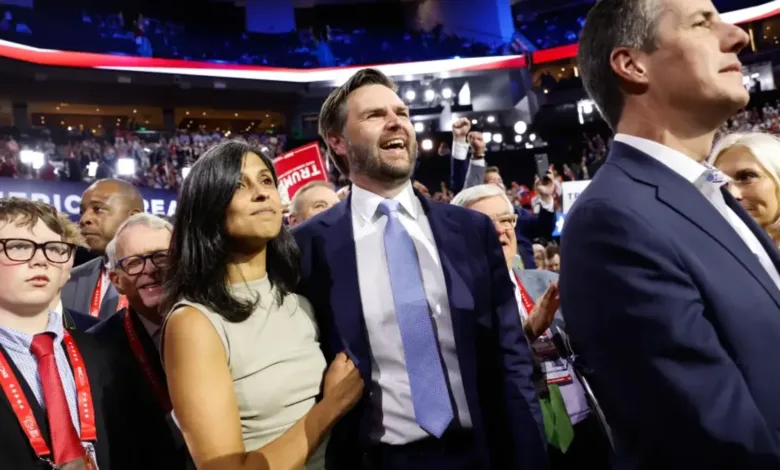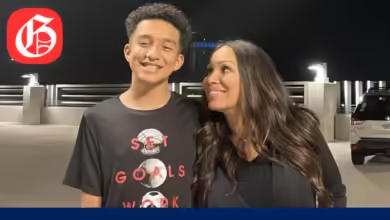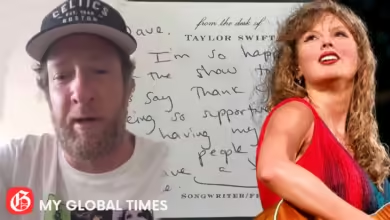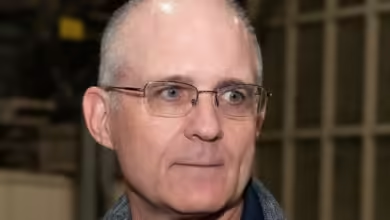
In a recent press conference that has garnered significant attention, JD Vance, the potential running mate for former President Donald Trump in the 2024 election, addressed crucial local issues that resonate deeply with Michigan voters. Vance’s remarks covered a wide range of topics, from the future of Michigan’s auto industry to the concerns of the Arab and Muslim American community, offering a glimpse into the potential policies of a Trump-Vance administration.
Defending Michigan’s Auto Industry
Vance began by addressing a contentious issue that has been at the forefront of Michigan politics: the future of the state’s iconic auto industry. Responding to criticisms and misconceptions, Vance emphatically stated, “Neither President Trump nor I have ever said that we want to take any money that’s going to Michigan Auto Workers out of the state of Michigan.” This clear stance aims to reassure Michigan voters of the Trump-Vance ticket’s commitment to the state’s economic backbone.
The potential vice presidential candidate didn’t stop there. He launched a scathing critique of the current administration’s approach to the auto industry, particularly focusing on Vice President Kamala Harris’s proposed $500 million investment plan. Vance dismissed this as “table scraps,” arguing that it falls woefully short of addressing the seismic shifts facing the industry.
“Kamala Harris is offering table scraps – $500 million – when you have an EV mandate that’s going to cost 117,000 auto worker jobs,” Vance declared. He painted a stark picture of the potential consequences of rushing towards electric vehicle (EV) production without considering market demands and economic realities.
Vance’s argument centered on the current market dynamics, where he claims electric vehicles are languishing on dealership lots for 90 to 120 days, while gas-powered cars are selling within 15 to 20 days. “If you force Americans to buy electric vehicles they don’t want, and that are made in China, you are going to throw this entire state into poverty,” he warned, tapping into concerns about job security and economic stability that resonate strongly with Michigan’s working-class voters.
The Trump-Vance vision, as articulated by Vance, is one of fighting for auto workers’ jobs, prosperity, and the future of American manufacturing. This stance positions them as defenders of traditional industries while also acknowledging the need for sustainable progress.
Reaching Out to Arab and Muslim Americans
Turning to another crucial demographic in Michigan, Vance addressed questions about his engagement with the state’s significant Arab and Muslim American population. While acknowledging that he wasn’t meeting with community leaders on this particular trip, Vance expressed enthusiasm for future engagements.
“We’re thrilled to have the mayor’s support, and though I’m not meeting any Arab-American or Muslim-American leaders on this particular trip, we certainly will in future trips to Michigan,” Vance stated. He humorously added, “You all going to get sick of me; I’m going to be in Michigan like 30 times the next 28 days,” before clarifying that this was a slight exaggeration meant to emphasize his commitment to the state.
Vance’s approach to the complex issues surrounding Middle Eastern politics was notably nuanced. He acknowledged the often differing views between Arab Americans and Jewish Americans on matters related to Israel and Palestine. However, he emphasized a common ground: “Both Jewish Americans and Arab Americans recognize that what’s in the best interest of Israel and Palestine is peace,” Vance said.
This statement serves as a bridge, attempting to unite diverse communities under the banner of peace and stability. Vance highlighted former President Trump’s track record, referring to him as the “president of peace,” a title that alludes to the Abraham Accords and other Middle Eastern diplomatic initiatives during the Trump administration.
A Broader Vision of Global Peace and American Prosperity
Vance’s discussion of Middle Eastern politics led to a broader critique of the current administration’s foreign policy. He took issue with Vice President Kamala Harris’s recent statement identifying Iran as the biggest threat to the United States. While acknowledging Iran as a significant concern, Vance argued that this view misses the bigger picture.
“Iran is nothing compared to China,” Vance asserted, identifying China as the primary threat facing the United States. This pivot to China allows the Trump-Vance ticket to present a more focused foreign policy vision, one that prioritizes what they see as the most pressing global challenge.
Vance’s criticism of the current administration’s approach to global affairs was pointed. “Kamala Harris seems to be totally fine with starting or escalating a conflict on every continent all over the world,” he stated, contrasting this with the Trump-Vance approach: “Donald Trump believes in peace through strength—stop the killing, get Americans out of harm’s way, and focus on building a peaceful globe.”
This vision, according to Vance, is not just about foreign policy but has direct implications for domestic prosperity and security. “That is how you help Palestinians, that’s how you help Israelis, but most importantly, it’s how you help American citizens,” he concluded.
Breaking News: Robert Saleh Fired as Head Coach of the New York Jets
The Road Ahead: A Message of Unity and Prosperity
As the 2024 election campaign intensifies, the Trump-Vance ticket is positioning itself as a unifying force, promising to address the concerns of all Americans, including the Arab and Muslim community. Their message of economic stability, job protection, and global peace aims to resonate with voters seeking a more secure and prosperous future.
Vance’s comments reflect a strategy that acknowledges the diverse needs of Michigan’s electorate – from auto workers concerned about their industry’s future to Arab Americans interested in Middle Eastern peace and stability. By emphasizing peace through strength, economic prosperity, and a focused approach to global challenges, the Trump-Vance campaign is making a bold pitch to Michigan voters.
As Vance prepares for multiple visits to Michigan in the coming weeks, his message of economic revitalization and global stability will be put to the test. The response from Michigan’s diverse communities, including its significant Arab and Muslim American population, will be crucial in determining the success of this approach.
In a political landscape often marked by division, the Trump-Vance ticket is attempting to craft a narrative of unity and shared prosperity. Whether this message will resonate with Michigan voters and the broader American electorate remains to be seen, but it undoubtedly sets the stage for an engaging and closely watched campaign season.






One Comment